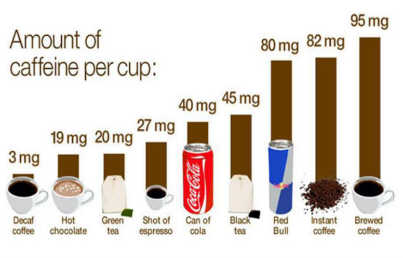By Ganymede
Hydration
One of the key tools in the fight against fatigue is good hydration.
Your body depends on water to survive. Every cell, tissue, and organ in your body needs water to work properly; your body uses water to maintain its temperature, remove waste and lubricate your joints. Water is needed for overall good health.
Most people should drink 6 to 8 glasses of water each day. That is a reasonable goal. However, different people need different amounts of water to stay hydrated.
If you are concerned that you are not drinking enough water, check your urine. If your urine is usually colourless or light yellow, you are well hydrated. If your urine is a dark yellow or amber colour, you may be dehydrated.
If you are in good health then a moderate amount of tea or coffee is not going to cause you any problems. But they are not recommended as your sole source of hydration as caffeine, unlike water, can cause side effects.
For example, people who drink coffee in the afternoon are likely to have impaired sleep quality compared to those who go caffeine-free. Caffeine is also a known diuretic, which makes you pass urine more regularly.
What is it?
Caffeine is the most common mood-altering drug in the world. It is a mild stimulant that affects the central nervous system. It can be found in many products such as tea, soft drinks, energy drinks, and some over-the-counter medications. According to the National Institute of Health, adults shouldn't consume more than 400mg of caffeine per day. Three to four cups of tea or coffee is considered moderate consumption and won't harm you.

Here are some hydration tips that can help:
Keep a bottle of water with you during the day. Carry a reusable water bottle and fill it with tap water
Drink water before, during, and after a workout
When you’re feeling hungry, drink water. Thirst is often confused with hunger
If you have trouble remembering to drink water, drink regularly to a pre-arranged schedule. i.e. on waking, every hour etc.
Energy drinks usually contain large amounts of caffeine. Also, they contain ingredients that overstimulate you (guarana, ginseng, or taurine). These are things your body doesn’t need. Most of these drinks are also high in added sugar. According to doctors, children and teens should not have energy drinks.
Some people are at higher risk of dehydration, including people who exercise at a high intensity (or in hot weather) for long periods, have certain medical conditions (kidney stones, bladder infection), are sick (fever, vomiting, diarrhoea), are pregnant or breastfeeding, are trying to lose weight, or are not able to get enough fluids during the day. Older adults are also at higher risk as they have a decreased sensation of thirst, and their kidneys have a decreased response to dehydration.
Water makes up more than half of your body weight. You lose water each day when you go to the bathroom, sweat, and even when you breathe. You lose water even faster when the weather is really hot, when you are physically active, or if you have a fever. If you don’t replace the water you lose, you become dehydrated.
When it comes to daily water intake, it is recommended that most women get about 2.7 litres of water a day (or about 12 cups), and most men get about 3.7 litres a day (or about 15 cups).
If you have any questions regarding the topics covered in our Fatigue series, please don't hesitate to get in touch with our HSEQ team on 0333 011 2048 who will offer you support and guidance.